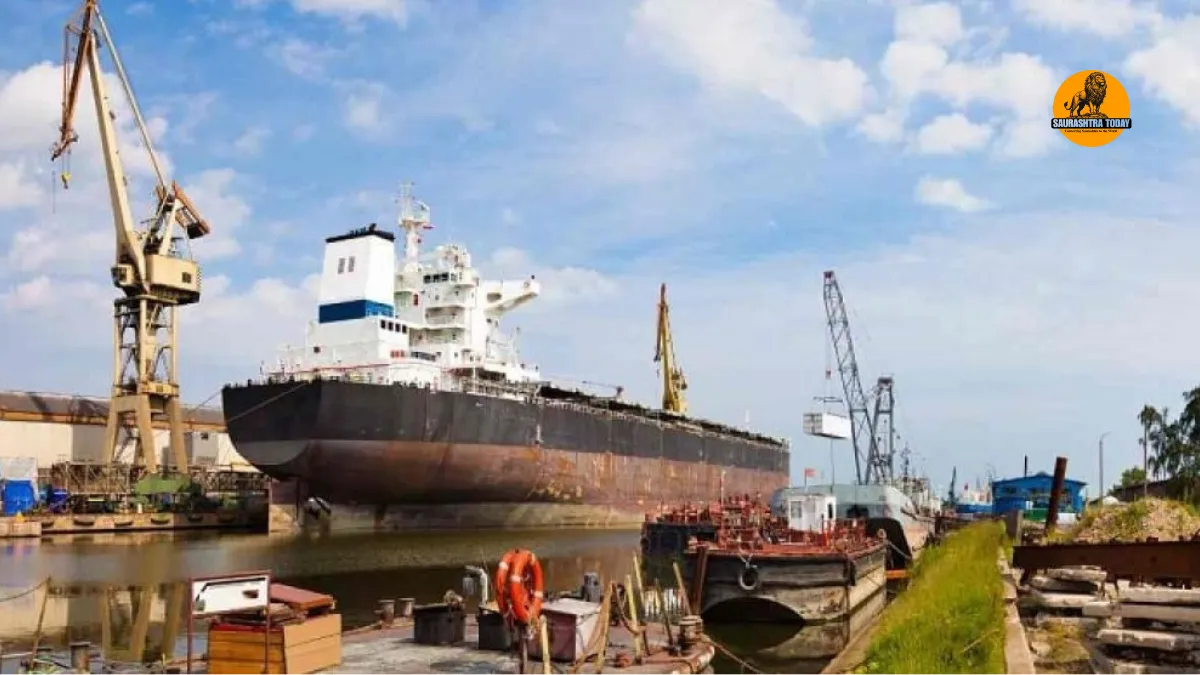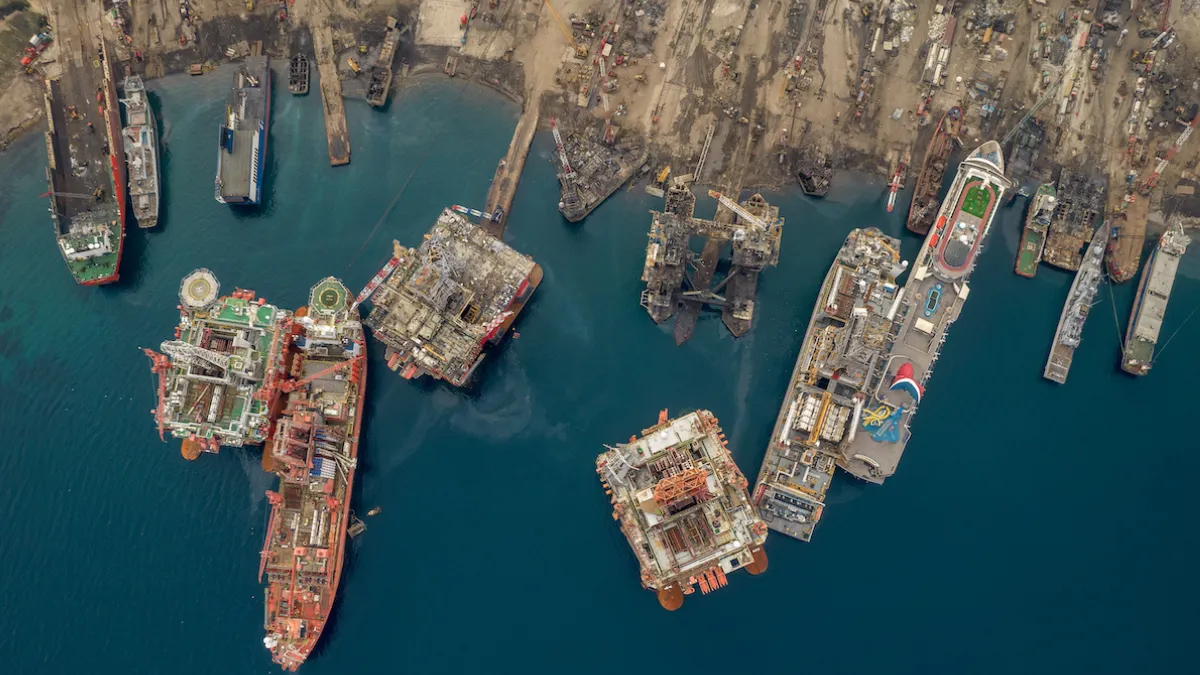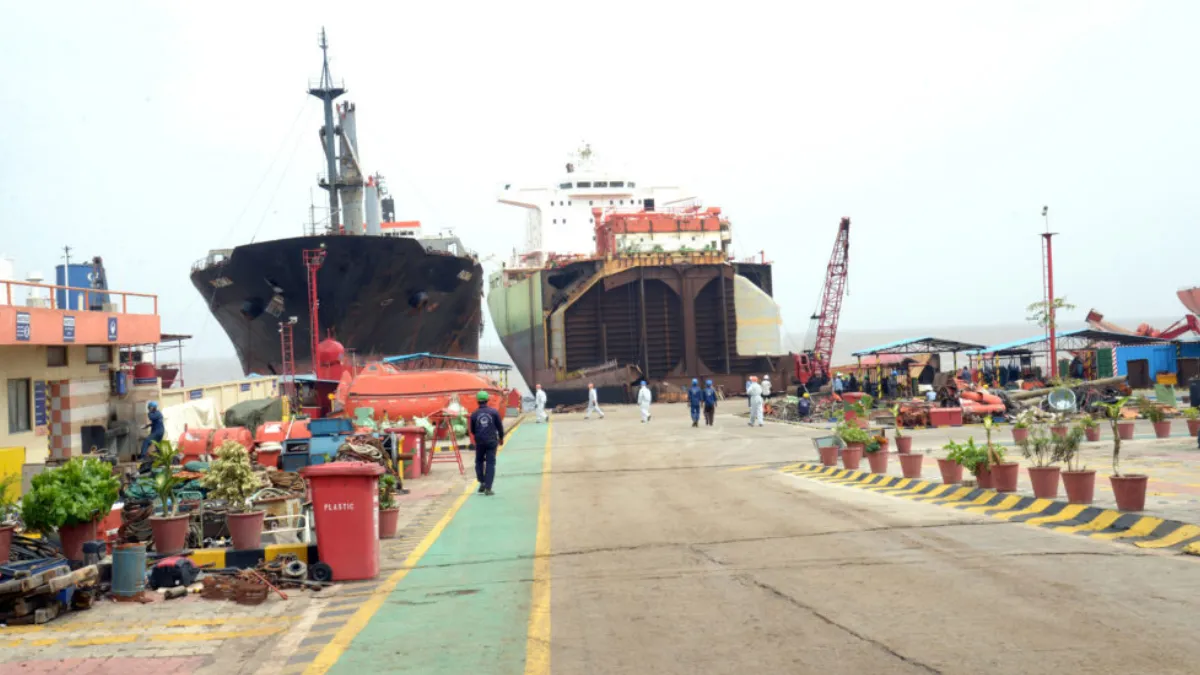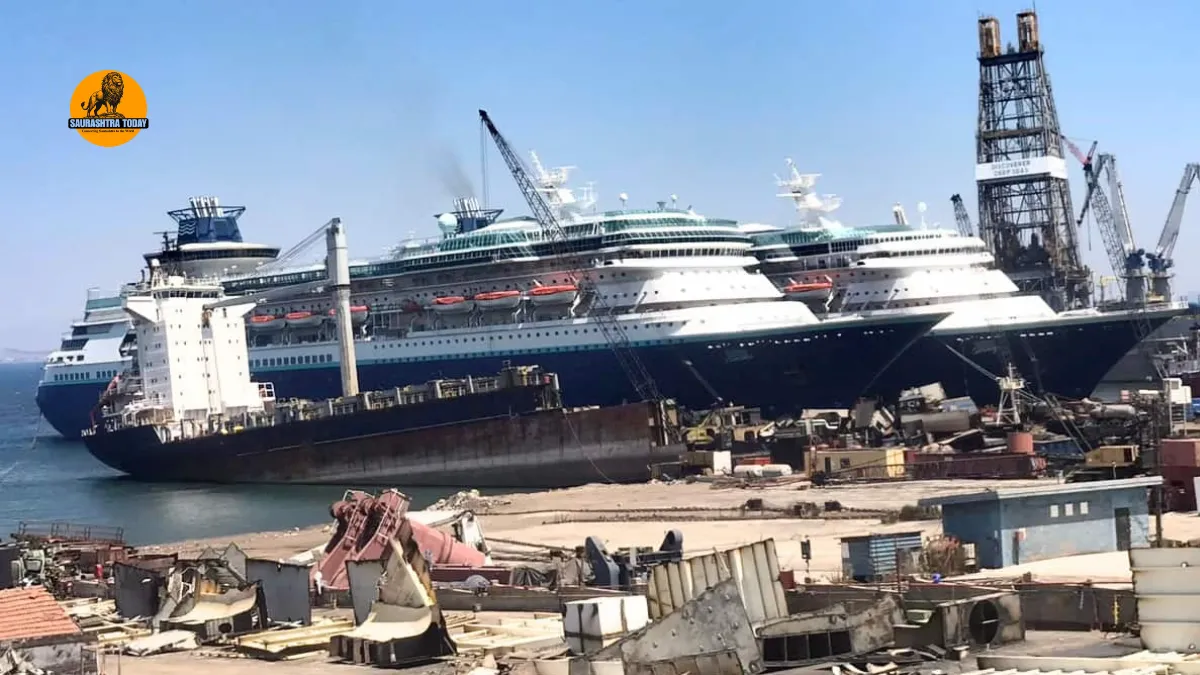Introduction
Alang Ship Recycling Yard: located on the western coast of India, is renowned as one of the largest ship recycling yards in the world. It has been a cornerstone of India’s maritime and industrial sector, providing employment opportunities, boosting local economies, and promoting sustainable recycling practices. However, over the years, the industry faced several regulatory challenges, particularly related to customs procedures and certification requirements.
Recently, significant changes have been made to ease these issues, specifically concerning the need for Chartered Engineer (CE) certificates and bond requirements for ships imported for dismantling. These developments mark an important step in streamlining operations and encouraging growth in the Alang ship recycling industry.

Customs Challenges Faced by Alang Ship Recycling Industry
The Alang ship recycling yard has been grappling with complex customs procedures for years. One of the most challenging regulations was the mandatory requirement for Chartered Engineer (CE) certificates for ships arriving for dismantling.
The Role of CE Certificates
CE certificates were previously requested by customs authorities to ensure that the imported vessels met certain safety and environmental standards before being dismantled. While these certificates served a regulatory purpose, they created unnecessary delays and financial burdens for ship owners and recyclers.
Industry Feedback
The Ship Recycling Industries Association (India) (SRIA) raised this concern, presenting evidence and data that highlighted the procedural difficulties caused by this requirement. According to SRIA, the CE certificates were often redundant, especially since other government authorities such as the Customs, GPCB, Surveyor, EARB, and GMB already conduct thorough inspections of the ships arriving at Alang.

Government Response and NAC Outreach Program
The National Assessment Centre (NAC), under the chairmanship of its convener, conducted an outreach program involving regional organizations, trade members, and key stakeholders. During this initiative, industry representatives were able to discuss pressing issues related to ship recycling, including customs procedures and certification requirements.
Decision on CE Certificates
After careful deliberation, NAC recommended that the routine requirement of CE certificates for ship dismantling assessments by Faceless Assessment Groups (FAG) should no longer be mandatory. This decision significantly reduces procedural hurdles and enables faster clearance of ships for recycling.
However, CE services may still be utilized in exceptional cases where specific technical input is necessary, but only with prior approval from the relevant Customs Commissioner.
Bond (Banded Security) Requirements for Imported Ships
Another critical issue raised by SRIA was the provision of bonds for imported ships. Previously, importers had to submit a bond or surety to ensure that the ships would be dismantled for recycling purposes.
Current Decision
The customs authorities have clarified that bond submission will continue as part of the standard procedure for ships imported for dismantling. The bond ensures compliance with all regulatory conditions and provides a safeguard against any potential misuse.
Additionally, a new digital platform called “e-Alang Bond” has been introduced for electronic submission, simplifying the process and reducing paperwork. This step aligns with India’s broader digitalization efforts and makes compliance easier for importers.

Impact on Alang Ship Recycling Yard
Streamlining Operations
These regulatory relaxations have a direct impact on the efficiency of operations at Alang. By removing the mandatory CE certificate requirement, ships can now be cleared faster, reducing waiting times and associated costs.
Boost to Industry Confidence
The decisions by customs authorities demonstrate responsiveness to industry concerns, which is likely to encourage more ship owners and recyclers to operate at Alang. This regulatory clarity also improves investor confidence and strengthens India’s position in the global ship recycling market.
Environmental and Safety Considerations
While regulatory procedures are being simplified, environmental and safety standards remain a priority. Alang has been at the forefront of implementing environmentally responsible ship recycling practices, including safe handling of hazardous materials, proper waste management, and adherence to international regulations.
The removal of CE certificate requirements does not compromise safety, as inspections by other government authorities continue to ensure compliance. This approach strikes a balance between operational efficiency and environmental responsibility.
Role of Ship Recycling Industries Association (India)
The SRIA has played a pivotal role in advocating for regulatory reforms. By presenting data-driven arguments and engaging with government authorities, SRIA has helped shape policies that benefit the industry while maintaining regulatory oversight.
Key Contributions
- Highlighting redundancies in the certification process.
- Advocating for digital submission of bonds to reduce paperwork.
- Engaging in dialogue with NAC, customs, and other stakeholders.
Their efforts have resulted in practical solutions that streamline ship recycling operations at Alang without compromising compliance.
Digitalization of Bond Submissions
The launch of the e-Alang Bond platform represents a significant advancement in the digitization of customs processes. Importers and recyclers can now submit bonds electronically, track their status, and ensure faster approval.
Benefits of Digital Submission
- Reduces paperwork and manual processing.
- Ensures transparency and accountability.
- Speeds up clearance procedures.
- Minimizes errors in bond submission.
This digital approach aligns with India’s broader goals of making regulatory compliance simpler and more efficient for businesses.
Also read: Bhavnagar News: Over ₹66,000 Crore Worth of 27 MoUs Signed to Boost Shipbuilding in Gujarat
Future Prospects for Alang Ship Recycling Yard
With the easing of customs procedures and enhanced digital processes, Alang is poised for substantial growth. The yard is expected to attract more international ships for dismantling, reinforcing its status as a leading global hub for ship recycling.
Economic Impact
- Increased job opportunities for skilled and unskilled workers.
- Growth in related industries such as steel, logistics, and transportation.
- Boost to local businesses and communities around Alang.
Environmental Sustainability
Alang continues to implement international standards for ship recycling, including compliance with the Hong Kong International Convention for the Safe and Environmentally Sound Recycling of Ships. This ensures that growth is sustainable and environmentally responsible.
Also read: Inox Air Launches ₹500-Crore Specialty Gas Facility at Dholera to Support India’s Semiconductor Boom
Stakeholder Perspectives
Views from SRIA
Vishnukumar Gupta, President of SRIA, emphasized that the relaxation in CE certificate requirements was a significant victory for the industry. He highlighted that multiple government authorities already ensure safety and compliance, making the CE certificate redundant for routine assessments.
Government Commitment
Customs authorities have assured that while CE certificates are no longer mandatory for routine assessment, safety, environmental, and regulatory compliance will continue to be strictly enforced. The combination of regulatory oversight and operational efficiency is expected to make Alang even more competitive globally.
Also read: What is a Tariff? Understanding Its Role in Global Trade
Conclusion: Alang Ship Recycling Yard
The recent regulatory changes at Alang ship recycling yard mark a turning point for India’s maritime industry. By removing unnecessary hurdles like mandatory CE certificates and implementing digital platforms for bond submission, the government has facilitated smoother operations for ship recyclers.
Alang’s growth will not only enhance India’s position in the global ship recycling market but also contribute to economic development, employment generation, and sustainable industrial practices. The collaborative efforts of industry associations like SRIA, government authorities, and NAC have demonstrated that effective dialogue and evidence-based policy-making can create a win-win scenario for all stakeholders.
With these reforms, Alang is set to continue its legacy as a world-class ship recycling hub, combining efficiency, environmental responsibility, and economic growth.


















